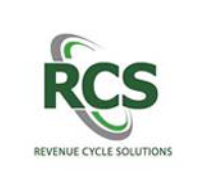WE KNOW CONSTRUCTION LAW
Lovein Ribman is a Texas based construction law firm who represents the construction industry in every county throughout the entire state of Texas. Our firm is led by Board-Certified Construction Attorneys (an honor held by only 135 attorneys in the state) who have been assisting Subcontractors, Material and Equipment Suppliers, Vendors and Laborers with securing payment through the “Payment Bond Claim Process” for over 15 years. Based on our experience, we believe that there is nothing stronger that you can do to secure and enforce payment than to invoke the Payment Bond Claim Process. To increase your probability of being paid, begin the process early and retain a Board-Certified Construction Lawyer to assist you. If you are considering serving a Payment Bond Claim on a Public or Private Project, please contact us for a free consultation by calling our toll-free number (888) 368-2483 or by submitting the Contact Form. Read below to learn more about the Payment Bond Claim process, deadlines, and commonly asked questions/answers.
PRIVATE PROJECT PAYMENT BOND CLAIMS
On large-scale privately-owned Projects (for government owned public projects, see below), it is not uncommon for the Property Owner to require the Original Contractor to purchase a Payment Bond from a Surety. The Payment Bond protects the Property Owner and its Property from Lien claims by guaranteeing the payment of any unpaid Subcontractors, Material Suppliers, Vendors and/or Laborers who timely and properly perfect a claim against the Bond.
In order for the Bond to provide the Property Owner and its Property with full protection, the Bond must meet the following requirements: (1) be issued by a corporate Surety authorized and admitted to do business in Texas and licensed by the state of Texas to execute Bonds as a Surety; (2) be in the full amount of the overall Prime Contract amount. For example, if the Prime Contract amount (the contract between the Property Owner and the Original Contractor) is for $100,000,000, then the Bond must also be issued for the full $100,000,000. If the Bond is issued for a lessor amount than the full Prime Contract amount, then the Property Owner and its Property would still be subject to Lien claims and Lien foreclosure; (3) be written in favor or the Property Owner; (4) be endorsed by the Surety, Property Owner, and Prime Contractor; (5) be conditioned upon prompt payment of all claims; and (6) contain the Surety contact information. A valid private Payment Bond must also be recorded in the Real Property Records, along with the Prime Contract. If the Bond complies with the above requirements, then the Property Owner is not required to retain the otherwise mandatory 10% statutory retainage from the Original Contractor’s progress payments and is not required to “trap funds” (withhold) in response to a Subcontractor, Material Supplier, Vendor or Laborer’s Notice of Claim (“Pre-lien”, “Preliminary Notice”, or “Intent to Lien”).
HOW TO ASSERT A CLAIM AGAINST A PRIVATE PAYMENT BOND?
Option One: If you have a copy of the Payment Bond or if it has been recorded in the Real Property Records as required, then the safest and preferred method is to send a Notice of Claim to the Surety and the Original Contractor by no later than the 15th day of the third month from each and every month you provide unpaid labor, material, or equipment to the Property. This is the same deadline imposed for serving a timely Notice of Claim prior to recording a Lien when a Payment Bond has not been obtained. The Notice should include the exact same information required for a valid Notice of Claim. Additionally, to increase the probability of being paid, the Notice should be drafted in the form of a strong Payment Demand Letter referencing the Prompt Payment Act and the Trust Fund Statute, and prepared and sent by a Construction Lawyer.
Option Two: Alternatively, if you do not have a copy of the Payment Bond and/or if the Bond is not written for the full amount of the Prime Contract Amount, then you can still perfect a claim against the Payment Bond by timely serving a Notice of Claim to the Property Owner and the Original Contractor, and timely filing a mechanic’s Lien against the Property. For unpaid progress payments (as opposed to withheld retainage), the Lien must be filed by no later than the 15th day of the fourth month from when you last provide labor, material or equipment to the Project. For withheld retainage, the Lien must be filed within no later than the 15th day of the third month from when the overall Project is completed.
WHAT IS THE DEADLINE TO FILE A LAWSUIT TO ENFORCE A CLAIM AGAINST A PRIVATE PAYMENT BOND?
If you do not receive payment after asserting the Bond claim, then after the passage of 60 days you can file a Lawsuit against the Surety and Original Contractor to enforce payment under the Bond. If the Bond was recorded as required, then you have one year from perfecting the claim (date the Notice was sent) to file the Lawsuit. If the Bond was not recorded as required, then you have two years to file the Lawsuit.
PUBLIC PROJECT PAYMENT BOND CLAIMS
You cannot file a mechanic’s Lien on a publicly owned property, such as schools, libraries, highways, parks, and government buildings. On public projects where the Prime Contract (the contract between the Public Entity and the Prime Contractor) is over $25,000.00, the Prime Contractor is required to obtain a Payment Bond from a qualified Surety to protect unpaid Subcontractors, Material Suppliers, Vendors, and Laborers. As a substitute to a mechanic’s Lien, unpaid Subcontractors, Material Suppliers, Vendors, and Laborers have the right to assert a claim against the Prime Contractor’s Payment Bond. The process is referred to as making a “Payment Bond Claim.” A Payment Bond creates a new and additional source of funds to potentially recover payment of the debt. For example, in the event of nonpayment, your first line of recovery would typically be a breach of contract claim against the party who hired you. However, when you properly initiate a Payment Bond Claim, you can now look to the Surety to pay the debt if the Contractor who hired you does not. The Payment Bond Claim process is also an excellent opportunity to gain leverage in negotiating a settlement. For example, upon receipt of your Payment Bond claim, the Surety will immediately notify the Prime Contractor and begin investigating the claim. If the Contractor cannot raise a legitimate defense to the claim, then the Surety will typically pressure the Contractor to pay the claim or pay it itself and look to the Contractor for reimbursement. When a Payment Bond Claim is prepared by a Construction Attorney in the form of strong Payment Demand, the process can be used to educate all of the involved parties of your legal rights and the steps that you intend to take to enforce payment in the event the claim is not immediately paid.
One of the most common mistakes is to assume that you will be paid for your work. The better approach is to assume that you will not be paid and to make it a practice to obtain the Payment Bond information at the outset of the Project and timely serve all Payment Bond Claim Notices well before your deadlines.
WHAT ARE THE NECESSARY STEPS FOR ASSERTING A PUBLIC PAYMENT BOND CLAIM?
Below are the bare minimum steps that must be completed in order to perfect a Public Payment Bond Claim. The deadlines and documents that you will use to complete these steps vary depending upon whether you were hired by the Original Contractor or a Subcontractor and whether your work was performed under a written contract or a verbal agreement.
When Hired by the Original Contractor
Step One: Serve the Surety and the Original Contractor with a Notice of Claim and a Sworn Statement of Account within the applicable statutory deadline.
Step Two: File a Lawsuit against the Surety and the Original Contractor to enforce payment under the Payment Bond if you have not been paid within the statutory deadline and before the deadline to file a Lawsuit passes.
When Hired by a Subcontractor, Material Supplier, or Vendor
Step One: If your contract allows for the withholding of contractual retainage, then you must serve the Original Contractor with a “Notice of Contractual Retainage” by no later than the 15th day of the second month from when you first provide labor, material, or equipment to the Project.
Step Two: Serve the Original Contractor with a “Second Month Notice of Claim” within the statutory deadline. Note that this step can be combined with Step 3 below.
Step Three: Serve the Surety and the Original Contractor with a Notice of Claim and a Sworn Statement of Account within the statutory deadline. If your claim is solely for unpaid retainage, then send a “Notice of Claim for Retainage.”
Step Four: File a Lawsuit against the Surety, the Original Contractor, and the contractor who hired you to enforce payment under the Payment Bond and for breach of contract if you have not been paid within the statutory deadline and before the deadline to file a Lawsuit passes.
Again, the above steps represent the bare minimum that you need to do to perfect a Payment Bond Claim. Read on to learn more about the deadlines and process for perfecting a Public Payment Bond Claim.
WHAT IS THE DEADLINE TO SERVE A CLAIM AGAINST THE PAYMENT BOND?
If Hired by the Original Contractor: If you were hired by the Project Original Contractor, then you must serve the Surety and the Original Contractor with a Notice of Claim and Sworn Statement of Account by no later than the 15th day of the third month, for each and every month that you unpaid provided labor, material or equipment to the Project.
Not Hired by the Original Contractor: If you were hired by anyone other than the Original Contractor, then you must serve two notices (unless combined into one) to make a claim against the Payment Bond. First, you must serve a Notice of the unpaid debt to the Original Contractor (only) by no later than the 15th day of the second month, for each and every month that you provided labor, material, or equipment to the Project and have not been paid. Additionally, you must also serve a Notice of Claim and a Sworn Statement of Account to the Surety and the Original Contractor by no later than the 15th day of the third month, for each and every month that you provided labor, material, or equipment to the Project and have not been paid.
WHAT INFORMATION MUST BE INCLUDED IN THE PAYMENT BOND CLAIM NOTICE TO RECOVER UNPAID PROGRESS PAYMENTS?
The Second Month Notice of Claim (Served Only if Not Hired by the Original Contractor): If you were not hired by the Original Contractor, then your first step to asserting a Payment Bond Claim is to serve the Original Contractor with a Second Month Notice of Claim. The Second Month Notice of Claim is intended to simply place the Original Contractor on notice that a Subcontractor/Material Supplier/Vendor has failed to timely pay one of its Subcontractors, Material Suppliers, Vendors, or Laborers. The Second Month Notice must include the following information to be valid: (1) the identity of the Company who hired you; (2) the nature and description of the unpaid labor, materials or equipment that you provided to the Project; (3) the months that you provided the labor, materials or equipment to the Project; and (4) the amount unpaid. The Second Month Notice of Claim does not need to be notarized. The primary purpose of the Notice is to place the Original Contractor on notice of the debt and to afford the Contractor an opportunity to force the nonpaying Subcontractor, Material Supplier, or Vendor to pay without involving the Surety.
Tip One: Although you are only required to serve the Original Contractor with this Notice, you should consider serving it on the Governmental Entity and the Contractor who hired you.
Tip Two: You can combine the Second Month Notice of Claim with the Third Month Notice of Claim if: (1) the Notice is sent by the 15th day of the second month; (2) you include all of the required Third Month Notice information in the Notice; and (3) you send the Notice to both the Surety and the Original Contractor.
The Third Month Notice of Claim (When You Performed Under a Verbal Contract): If you provided labor, material, or equipment to the Project pursuant to a verbal agreement, then you are required to include all of the following information in the Third Month Notice of Claim: (1) the name of the party for whom the work was performed or to whom the material was delivered; (2) the date of performance; (3) a description of the labor, material and/or equipment; (4) the amount due; (5) a general itemization of the Claim; (6) a Sworn Statement of Account; and (7) copies of all documents, invoices, or purchase orders that reasonably identify: the labor performed or the materials delivered; the job location; and the destination of delivery for any materials.
The Third Month Notice of Claim (When You Performed Under a Written Contract): If you provided labor, material and/or equipment to the Project pursuant to a fully executed written contract, then your Notice requirements are less stringent than they are if you had performed under a verbal contact. When you perform under a written contract, the Third Month Notice of Claim must include the following: (1) a notarized Sworn Statement of Account, indicating the amount owed, a statement that all credits and offsets have been applied, and identification of any withheld retainage; and (2) a copy of the executed contract.
HOW TO INITIATE A PAYMENT BOND CLAIM FOR UNPAID WITHHELD RETAINAGE?
If Not Hired by the Original Contractor: If you were hired by anyone other than the Original Contractor, then you are required to serve the Original Contractor with a Notice of Retainage Agreement by no later than the 15th day of the second month from when you first provide labor, material, or equipment to the Project. The Notice must include at least the following information: (1) notice that your contract provides for the withholding of retainage; and (2) identification of the amount being retained. This is a required Notice which must be sent in addition to the notice described below.
All Claimants: All Claimants whose contract allows for the withholding of retainage until completion of the Project, must serve a Notice of Claim for Retainage on the Surety and the Original Contractor by no later than the 90th day after the date of final completion of the “Prime Contract” (the contract between the Public Entity and the Original Contractor) as a condition precedent to filing a Lawsuit to force the Surety to pay the retainage under the Payment Bond. The Notice must include at least the following information: (1) the amount of the overall contract; (2) any amounts paid; and (3) the outstanding balance owed under the contract.
HOW TO SERVE PAYMENT BOND CLAIM NOTICES?
The Texas Government Code expressly requires that the Payment Bond Claim Notices be sent by either certified mail return, receipt requested, or registered mail.
WHAT IS THE DEADLINE TO FILE A LAWSUIT TO ENFORCE A CLAIM AGAINST A PUBLIC PAYMENT BOND?
You can file a Lawsuit against the Surety and the Prime Contractor to enforce the Payment Bond Claim any time after the passage of 61 days from the date that you mailed Notice of your claim and up to one year from the date that you timely made the Claim. If the Lawsuit is not filed within the one year time period, it is forever waived.
IF YOU HAVE PROVIDED LABOR, MATERIAL, OR EQUIPMENT TO A PRIVATE OR PUBLIC PROJECT AND HAVE NOT BEEN PAID, PLEASE CONTACT US TO DISCUSS THE PAYMENT BOND FILING PROCESS AND HOW WE CAN HELP YOU COLLECT YOUR UNPAID INVOICES. FOR NO CHARGE, WE WILL: (1) ANALYZE YOUR BOND CLAIM RIGHTS, (2) ANSWER ANY BOND CLAIM QUESTIONS, AND (3) RECOMMEND A COURSE OF ACTION.
TEXAS CONSTRUCTION ATTORNEYS
SUBMIT THIS FORM OR CALL (888) 368-2483 TO TALK TO A CONSTRUCTION ATTORNEY

RCS – Revenue Cycle Solutions


Fry Construction

Keith Terry

City House Buyers

Leslie Talbot

L. Hyland

Entrust Energy


Kim Ury





